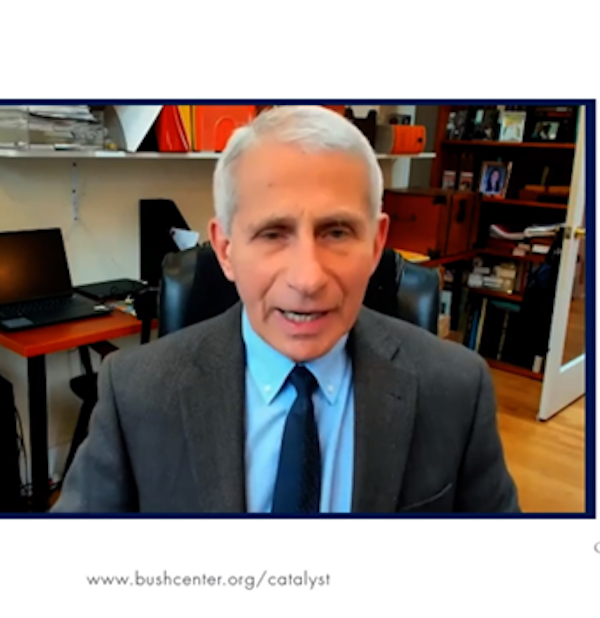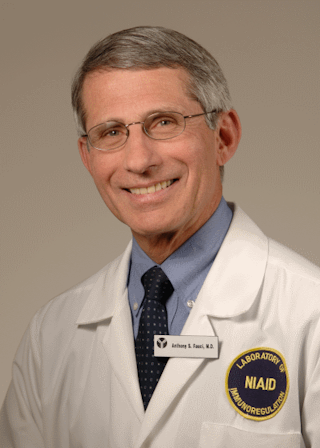Building Up the Public Health Workforce
The COVID-19 pandemic has attracted some young people into public health and medical professions while steering others away. Dr. Anthony Fauci comments on this phenomenon while offering his ideas for strengthening that workforce along with the nation’s public health infrastructure.
 A Catalyst Conversation with Dr. Fauci, David J. Kramer, and Crystal Cazier.
A Catalyst Conversation with Dr. Fauci, David J. Kramer, and Crystal Cazier.
Dr. Anthony Fauci topped off his 54-year public health career facing the worst pandemic in a century. But long before the term “COVID-19” became part of the world’s lexicon, the longtime Director of the National Institute of Allergy and Infectious Diseases had dealt straight-away with emerging viruses and diseases. That includes the deadly spread of HIV/AIDS in the 1980s both in the U.S. and around the globe. As the virus started to devastate sub-Saharan Africa, President George W. Bush gave him the task of leading the creation of the new President’s Emergency Plan for AIDS Relief (PEPFAR).
In this Catalyst video with David Kramer, Executive Director of the Bush Institute, and Crystal Cazier, Deputy Director of Global Health at the Bush Institute, the Presidential Medal of Freedom winner addresses the impact of COVID-19 on the public health and medical professions, the need to attract young people into these fields, the importance of data in meeting public health challenges, the moral imperative of PEPFAR, and his own journey into a career of public health service. To Dr. Fauci, his calling was to give back to society, a principle that his parents, high school, and college instilled in him at an early age.
The excerpts below from Dr. Anthony Fauci’s Catalyst interview have been edited only for length and clarity.
We have been, over decades, the victims of our own success in public health. If you go back to the time prior to the widespread use of vaccinations that have dramatically diminished childhood infections and deaths as well as in adults, we have let the infrastructure of the local public health system have a significant degree of attrition.
– Dr. Anthony Fauci
We need to get public health officials at the government, the state, and the academic level out there more, trying to articulate the principles of being involved in public health, which by definition is public service. [Talking] about the importance and the gratification associated with public service is something that is very important.
– Dr. Anthony Fauci
My parents had always had a theme in their lives that was unselfish: not what we can do for ourselves but what we can give back to society. I think it relates to the fact that my mother and father were first-generation immigrants.
– Dr. Anthony Fauci
The Catalyst believes that ideas matter. We aim to stimulate debate on the most important issues of the day, featuring a range of arguments that are constructive, high-minded, and share our core values of freedom, opportunity, accountability, and compassion. To that end, we seek out ideas that may challenge us, and the authors’ views presented here are their own; The Catalyst does not endorse any particular policy, politician, or party.

